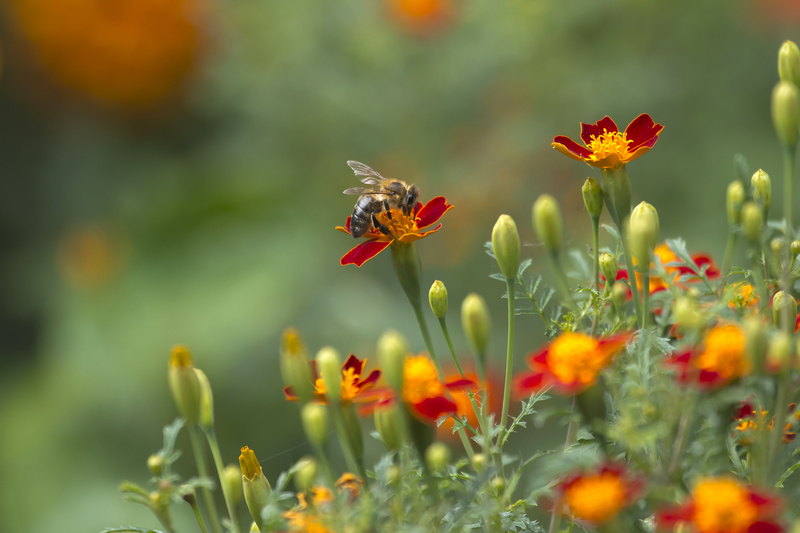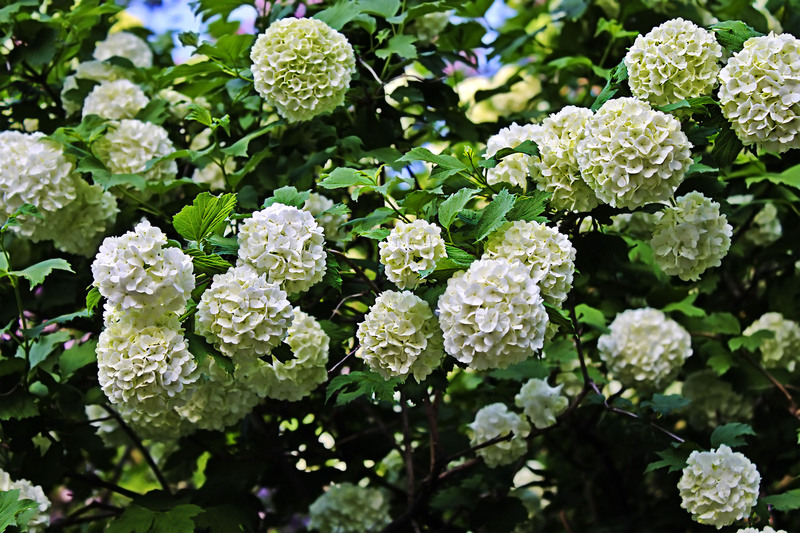Unlock your garden's potential with creative hedge shapes
Posted on 14/08/2025
Unlock Your Garden's Potential with Creative Hedge Shapes
Imagine wandering down a garden path framed by living sculptures, or gazing across beds bordered by whimsical waves of green. Unlocking your garden's potential with creative hedge shapes isn't just about managing boundaries -- it's about transforming your outdoor spaces into artful, dynamic environments. Whether you have a vast lawn or a compact courtyard, learning to sculpt hedges in distinctive and imaginative forms lets you personalize your sanctuary and boost curb appeal.

Why Choose Creative Hedge Shapes?
Traditional straight hedges certainly bring order and structure, but more inventive hedge designs can do much more. They:
- Establish unique focal points that capture attention from every angle
- Enhance privacy with intriguing layering and shapes
- Frame views and guide movement through your garden
- Introduce year-round texture and visual delight
- Provide habitats for wildlife using varied structures
- Add an undeniable "wow" factor regardless of garden size
Creative hedge shapes can elevate both formal and informal gardens. Whether you lean toward playful, geometric, or naturalistic styles, there's a solution to reflect your personality and set your landscape apart.
Popular and Inspiring Hedge Shapes
1. Classic Topiary Forms
Perhaps the most iconic expression of hedging creativity is topiary -- a horticultural art that shapes living plants into stylized forms. Think spirals, spheres, pyramids, or even animal silhouettes. These striking shapes offer grand "living sculptures" to catch the eye and showcase horticultural skill.
- Balls and Orbs: Standalone, grouped, or atop stems for a lollipop effect.
- Spirals: Dramatize entryways or highlight focal points with twisting dynamics.
- Cones or Pyramids: Lend a formal, statuary elegance to entrances and borders.
2. Waves and Undulating Hedges
Soft, rolling curves create movement and break monotony in linear borders. A wavy hedge can frame paths or lawn edges with playful rhythm, especially effective alongside straight paths for visual contrast.
- Ideal for front gardens and modern designs
- Encourages the eye to roam, amplifying space
3. Geometric Patterns
Try squares, rectangles, diamonds, or zigzags for a structured, contemporary appeal. Geometric shapes can mark out garden rooms, frame vegetable plots, or support formal knot gardens.
- Great for: Classic English gardens, courtyards, and parterres.
- Adds symmetry and order to any planting design.
4. Tiers and Layered Hedges
Create depth and drama with layered hedges in contrasting heights. Terraced beds or stepped slopes gain structure when separated with neat, tiered hedge shapes.
- Helps divide larger spaces into intimate "rooms."
- Enhances vertical interest and staging for flowering plants.
5. Abstract and Freeform Shapes
Try imaginative or organic forms to express individuality. From cloud-pruned Buxus to gentle curves mimicking rolling hills, freeform hedging can echo landscape features or serve as living art.
- Perfect for informal or cottage gardens seeking a relaxed, quirky touch.
- Encourages creativity and experimentation!
6. Living Edging and Hedges with Holes
Delight children and visitors by shaping windows, tunnels, or "peekaboo" holes into your hedges. This playful tactic can add function (like "windows" for viewing flowers or wildlife) and fun.
What Plants Work Best for Creative Hedge Shaping?
Success starts with choosing the right hedge species. Plant selection will affect the ease of shaping, the growth rate, and the look you achieve. Here are some top picks for living sculptures and inventive hedge designs:
- Buxus sempervirens (Boxwood): The classic choice, slow-growing and fine-leaved for tight, detailed forms.
- Taxus baccata (Yew): Versatile, lush, and tolerant of heavy pruning. Ideal for traditional topiary and complex shapes.
- Privet (Ligustrum): Hardy and fast-growing but requires regular trimming; responds well to creative shaping.
- Lonicera nitida (Shrubby honeysuckle): Very fine texture and quick response to pruning, perfect for intricate designs.
- Ilex crenata (Japanese holly): Boxwood lookalike with great disease resistance and small leaves.
- Euonymus japonicus, Berberis, Escallonia: For colorful foliage and seasonal interest.
Tip: For larger, lush shapes in informal gardens, consider Photinia, Laurel, Viburnum, or Beech. Fast-growing varieties fill out quickly and are easier to maintain in freeform designs than highly formal hedges.
How to Design & Shape a Creative Hedge
Planning Your Living Masterpiece
- Assess your space: Sun, soil, available width, and desired height are all crucial factors.
- Sketch your ideas: Start with paper or a garden design app. Map out entrances, focal points, sightlines, and green "walls."
- Choose species: Match your chosen plant to the complexity of the design and your maintenance capacity.
- Think long-term: Growth rates, eventual size, and pruning needs are key to sustainable creativity.
Basic Steps for Shaping Hedges
- Mark out your design: Use canes, string, or stencils for precise guidelines. For curves, flexible hoses or rope work well.
- Initial cutting: Trim back to rough shapes. Don't cut too hard unless your hedge species responds well to renovation.
- Refine over time: Gradually shape to perfection with seasonal or twice-yearly trims. Patience is key for sharp forms.
- Use the right tools: Long-handled shears work for large surfaces, while secateurs, topiary clippers, or electric trimmers allow detail work.
Pro Tips for Unusual Hedge Shapes
- For topiary or complex curves, consider wire frames or templates to train growth precisely.
- Feed and water regularly to support dense, healthy foliage. Creative shapes need robust plants!
- Maintain sunlight and air flow within the hedge to avoid disease and ensure all areas fill out evenly.
- Be gentle: Over-cutting can stress even tolerant species and lead to sparse or brown patches.
- Incorporate evergreen varieties for year-round impact or mix in flowering/variegated types for seasonal flair.
Creative Hedge Shape Ideas for Every Garden
Small Gardens
- Potted topiary: Even tiny porches or balconies can feature spiral box, multi-ball bay trees, or cube privet in planters.
- Dwarf cloud-pruned hedges: Low, soft shapes act as lush edging along paths or patios.
- Mini mazes: Enclose a small play area or herb garden with a tiny, whimsical labyrinth of dwarf boxwood.
Family-Friendly Spaces
- Tunnel hedges: Delight children (and adults!) with green passageways or "secret" archways between flower beds.
- Peekaboo holes: Add safe, low windows for play, wildlife viewing, or creative garden peeks.
- Animal shapes: Topiary rabbits, birds, or fantasy creatures to inspire imaginations.
Formal and Contemporary Gardens
- Geometric panels: Square, rectangular, or triangular hedges for crisp definition and architectural appeal.
- Layered "room" dividers: Use hedges at varying heights to define dining, lounging, or kitchen garden zones.
- Ornamental waves and spirals: Echo the lines of modern hardscaping with carefully manicured curves.
Larger Landscapes
- Buxus parterres: Create grand, symmetrical beds defined by interlocking hedges.
- Organic cloud shapes: Soften major driveways or paths with rolling, cloud-pruned masses of greenery.
- Themed topiary gardens: Establish rows of living animals, abstract forms, or playful figures for a unique destination.
Maintenance Tips for Lasting Impact
- Trim regularly: Little and often is best, especially for formal shapes.
- Sharpen your tools to avoid ragged edges and bruised foliage.
- Feed annually in spring to encourage dense, healthy growth.
- Water newly planted hedges well, and mulch to preserve moisture and suppress weeds.
- Inspect for pests and disease, treating promptly to maintain lush forms.
- Prune at the right time of year -- generally late spring or late summer.

Unlock Garden Beauty: Your Next Steps
Unlock your garden's potential with creative hedge shapes by daring to think beyond tradition. Whether you attempt simple waves, intricate topiary, or playful tunnels, the rewards are always deeply satisfying -- both for you and everyone who visits. Start small if you're new, and let your garden evolve as your confidence and skill grow.
Embrace the living art of inventive hedging. These green "sculptures" will change with the seasons and bring joy for years to come. The only limit is your imagination!
Frequently Asked Questions About Inventive Hedge Designs
- Can beginners attempt creative hedge shaping?
Yes! Start with forgiving plants like boxwood or privet, and simple shapes such as spheres or curves. Use guides for precision and let your skills develop. - How long does it take for a hedge shape to develop?
This depends on growth rate, variety, and size. Small topiary features may be shaped within 2-3 years, while large, intricate forms take longer to mature. - Are creative shapes high-maintenance?
Some require regular, even monthly, trims, especially fast growers. However, many creative designs can be adapted for low-maintenance needs using slow-growing species or loose forms.
Conclusion: Unlock Your Garden's Potential Today
Why settle for basic borders when your yard can become a personalized oasis of sculpted greenery? From classic topiary to playful tunnels and voluptuous curves, creative hedge shapes offer impact, style, and an ever-changing focal point.
Start with a single design, experiment boldly, and discover how your hedges can unlock your garden's full potential. You'll not only enhance privacy and structure, but also bring mobility and fun to the great outdoors -- for loved ones and visitors alike.
Transform your landscape today and experience the joy of living artistry in your own backyard!
Latest Posts
Strategies for Pawsitive Garden Experiences
Step into the World of Orchids with Confidence
Eco-friendly herb gardening: sustainable practices for beginners

